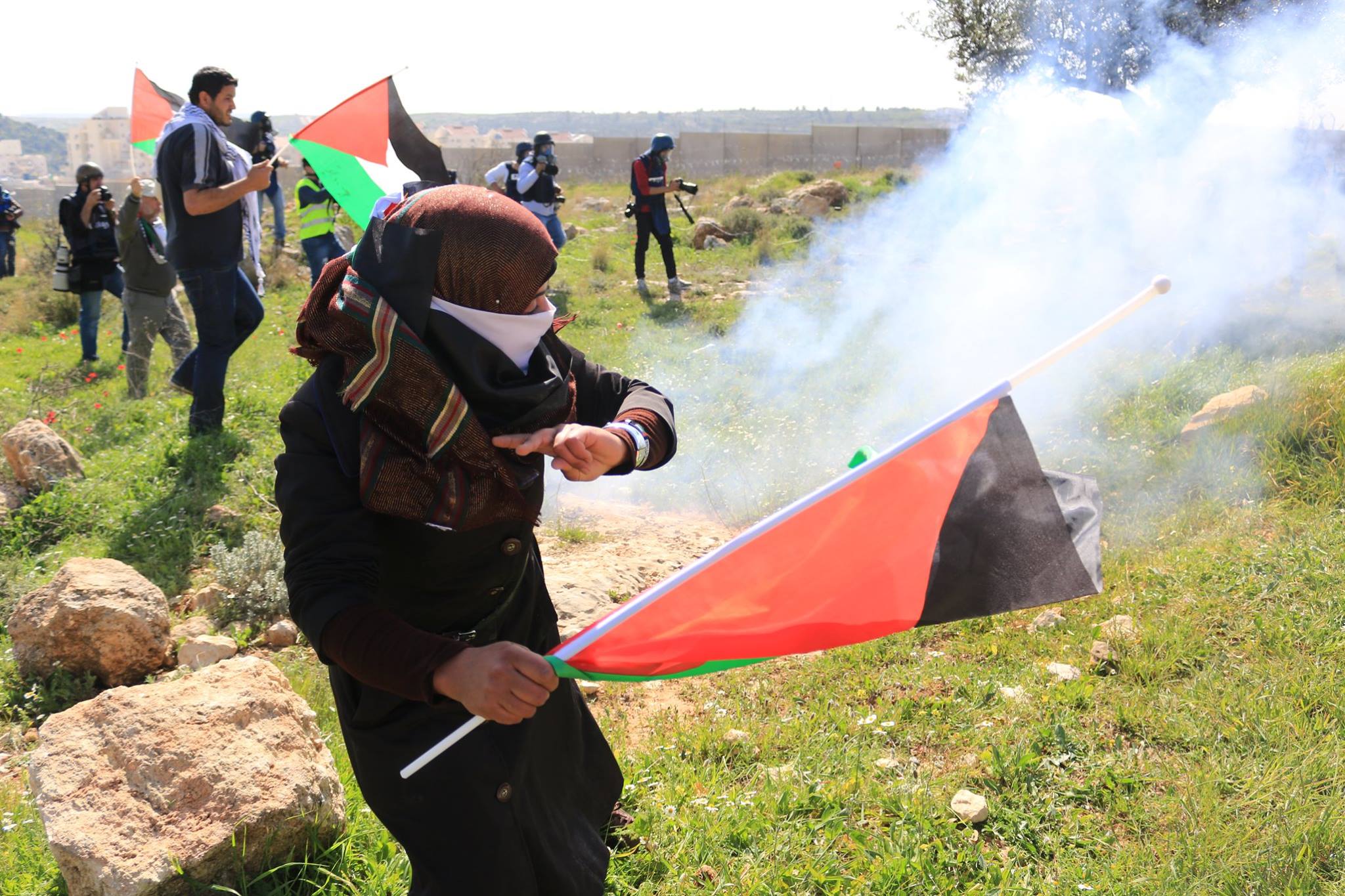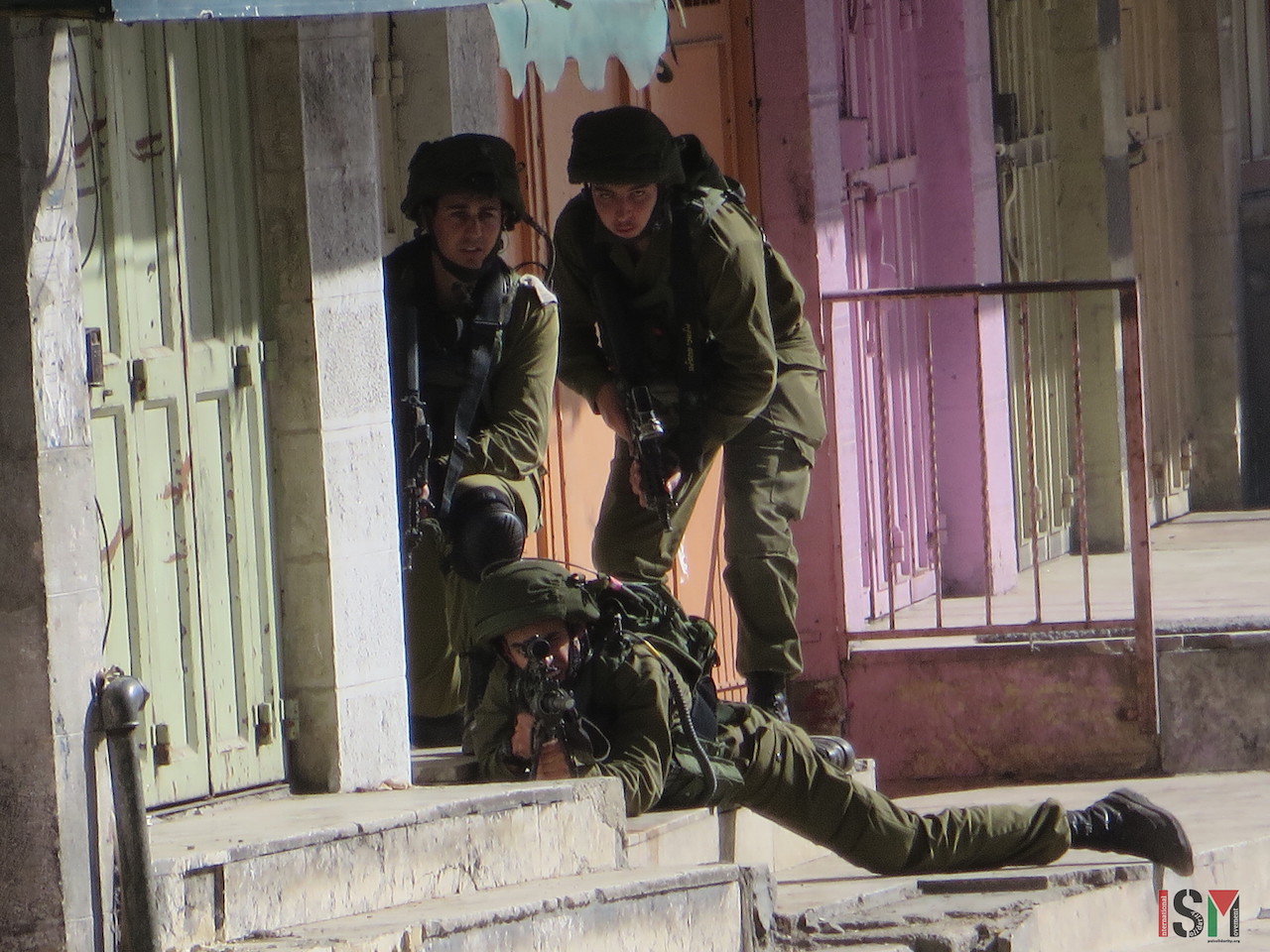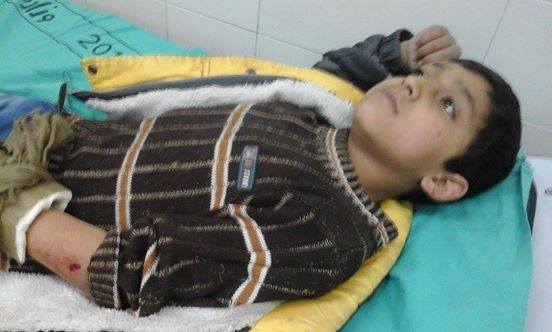Tag: Arrests
-
UPDATED Action Alert: Help free Hanan, arrested at Bil’in 10th anniversary demonstration
4th March 2015 | International Solidarity Movement | Bil’in, Occupied Palestine Update March 2015: The Israeli prosecution appealed Hanan’s bail. She is still currently imprisoned. Her bail now needs to paid this Sunday, March 6. We have now raised 519 shekels, but she needs much more in order to be able to go home on Sunday. ******* On February…
-
Four Palestinians and one female German demonstrator shot with live ammunition at “Open Shuhada Street” protest
28th February 2015 | International Solidarity Movement, Khalil Team | Hebron, Occupied Palestine On February 27 in occupied Al-Khalil (Hebron), Israeli forces fired live ammunition towards nonviolent protesters participating in the annual Open Shuhada Street demonstration, injuring five including four Palestinian activists, one of them 17 years old, and one German citizen. More were also injured by rubber-coated steel bullets…
-
10-year-old boy attacked and arrested for playing in the snow
22nd February 2015 | International Solidarity Movement, Khalil Team | Hebron, Occupied Palestine On the afternoon of the 21st of February Saleh Abu Shamsiya, a 10-year-old Palestinian boy, was attacked by settler youth in the Al-Khalil (Hebron) neighborhood of Tel Rumeida. Saleh’s father and activist with the group Human Rights Defenders Imad Abu Shamsiya reported that the settlers, who looked around 18-19 years old, surrounded his son while…



